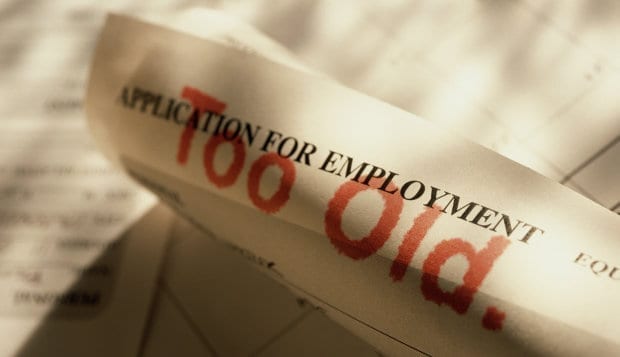Discrimination appears in many forms, and for many older Americans, ageism is a real thing, especially for those trying to find a job. More and more older Americans are having a hard time even getting a shot at an interview, prompting some to raise questions like “can a job applicant sue an employer for discriminating against older workers?” Well, one Atlanta man did. Richard Villarreal sued the R.J. Reynolds company when the company failed to give him a response to an application he submitted. However, the 11th Circuit Court of Appeals ruled against Villarreal, and now the Supreme Court is being asked to hear the case. Depending on how they rule, it could become “tougher for older workers to prove age discrimination” when turned down for jobs.
Discrimination appears in many forms, and for many older Americans, age discrimination is a real thing, especially for those trying to find a job. More and more older Americans are having a hard time even getting a shot at an interview, prompting some to raise questions like “can a job applicant sue an employer for discriminating against older workers?” Well, one Atlanta man did. Richard Villarreal sued the R.J. Reynolds company when the company failed to give him a response to an application he submitted. However, the 11th Circuit Court of Appeals ruled against Villarreal, and now the Supreme Court is being asked to hear the case. Depending on how they rule, it could become “tougher for older workers to prove age discrimination” when turned down for jobs.
Like many older Americans across the country, Villarreal was 49 when he applied for the R.J. Reynolds job. His first application never received a response, and he ended up applying five more times throughout the following two years, with no luck. It wasn’t until later, when a whistleblower came forward, that he found out why his applications were going unanswered. As it turns out, a “contractor hired to screen applicants rejected Villarreal and other older applicants because the tobacco company wanted someone 2-3 years out of college and instructed the contractor to stay away from applicants with 8 to 10 years of experience.”
Convinced this was a form of discrimination, Villarreal sued the company, “with the backing of the Equal Employment Opportunity Commission.” However, according to the federal district court and the 11th Circuit, he wasn’t “protected by a federal law banning age discrimination by employers” because he wasn’t an employee, only an applicant.
Judge William Pryor also wrote in an opinion that “Villarreal had filed his suit too late, waiting nearly three years after his initial job application. It didn’t matter that Villarreal didn’t know why he had been rejected until after the whistleblower came forward.” According to Pryor and the ruling, Villarreal “should have diligently tried to find out why his application wasn’t accepted.”
However, a dissenting appeals court judge, Judge Robin S. Rosenbaum, disagreed, saying, “employers who act illegally should not escape liability just because their conduct was hidden through the end of the limitations period.”

As the situation stands right now, the Supreme Court is still debating whether to hear the case. However, it should be noted that the “Supreme Court and lower courts have ruled that employers can cite things such as pay levels or health costs to justify treating older workers differently, despite the federal anti-discrimination law.”
With so much stacked against them, it’s a wonder any older American is able to land a job. According to NPR and recent research, it’s only getting more difficult for “older workers to get hired, especially older women.”
But Villarreal does have parties on his side. In addition to the Equal Employment Opportunity Commission, AARP is urging the “Supreme Court to hear Villarreal’s case,” and wrote in a briefing:
“Employers continue to engage in subtle discriminatory behavior against older workers. If the 11th Circuit’s decision is allowed to stand, the federal law banning age discrimination will become mere words on paper for older, unemployed individuals. For while employers will still be prohibited from limited job applicants by age…they can effectively achieve the same result by imposing maximum-years-of-experience criteria or requiring recent educational degrees as minimum qualification”


Join the conversation!